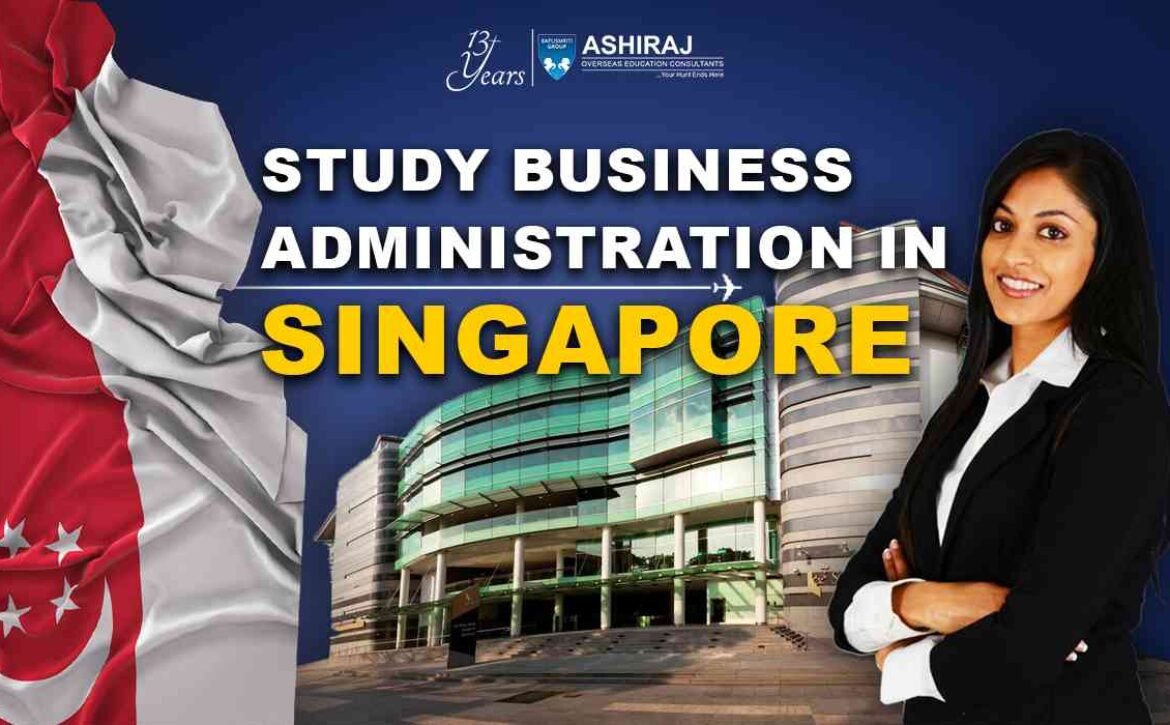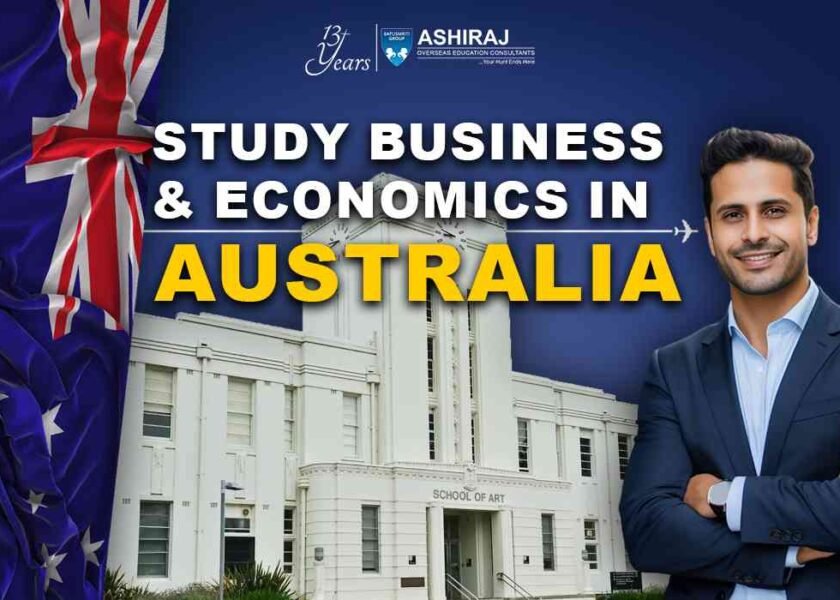
Business Administration in Singapore
Business administration in Singapore encompasses a dynamic landscape shaped by the city-state’s strategic location, robust economy, and conducive business environment. With its reputation as a global financial hub and a melting pot of diverse cultures, Singapore offers a unique platform for businesses to thrive and expand. The discipline of business administration in Singapore integrates both traditional management principles and innovative strategies tailored to meet the demands of a rapidly evolving market.
Business administration in Singapore facilitates a comprehensive understanding of key facets such as finance, marketing, human resources, and operations within the context of the nation’s regulatory framework and global market dynamics. Through rigorous academic programs and practical experiences, students and professionals alike gain invaluable insights into effective leadership, strategic decision-making, and sustainable business practices. As Singapore continues to position itself as a leader in the global business arena, the study of business administration in the city-state remains instrumental in shaping future leaders and driving organizational success.
Why to Study Business Administration in Singapore?
- Global Financial Hub: Singapore’s status as a global financial hub offers unparalleled opportunities for networking and career advancement in various industries.
- Cultural Diversity: With its diverse population and international outlook, studying business administration in Singapore provides exposure to different cultures and perspectives, essential in today’s globalized world.
- Strategic Location: Situated at the heart of Southeast Asia, Singapore serves as a gateway to the burgeoning markets of the Asia-Pacific region, making it an ideal location for business education.
- Conducive Business Environment: Singapore boasts a business-friendly environment characterized by political stability, strong rule of law, and government support for entrepreneurship and innovation.
- Cutting-edge Education: Renowned universities and business schools in Singapore offer cutting-edge programs in business administration, equipping students with the latest knowledge and skills required for success in the corporate world.
- Opportunities for Internships and Employment: The presence of multinational corporations and thriving industries in Singapore provides abundant opportunities for internships and employment for business administration students.
- Networking Opportunities: Studying in Singapore facilitates networking with industry professionals, academics, and fellow students, enhancing career prospects and fostering long-term professional relationships.
- Exposure to Emerging Trends: Being at the forefront of innovation, studying business administration in Singapore exposes students to emerging trends and technologies shaping the future of business worldwide.
Top Universities to Study Business Administration in Singapore
University | QS World University Rankings 2023 | Type of University | Average Annual Fees | Programs Offered |
National University of Singapore (NUS) | 1 | Public | SGD 30,000 – SGD 40,000 | Bachelor’s, Master’s, PhD |
Nanyang Technological University (NTU) | 2 | Public | SGD 25,000 – SGD 35,000 | Bachelor’s, Master’s, PhD |
Singapore Management University (SMU) | 3 | Private | SGD 35,000 – SGD 45,000 | Bachelor’s, Master’s, PhD |
Singapore University of Social Sciences (SUSS) | 10 | Public | SGD 20,000 – SGD 30,000 | Bachelor’s, Master’s, PhD |
Singapore Institute of Management (SIM) | Not Ranked | Private | SGD 20,000 – SGD 25,000 | Bachelor’s, Master’s, MBA |
When considering pursuing business administration in Singapore, it’s crucial to choose the right university that aligns with your academic and career goals. Here’s a list of the top universities in Singapore for business administration based on the QS World University Rankings 2023. National University of Singapore (NUS) leads the pack, followed closely by Nanyang Technological University (NTU), both renowned for their comprehensive programs and research excellence. Singapore Management University (SMU) stands out for its focus on industry-relevant education and close ties with the business community. Singapore University of Social Sciences (SUSS) offers a unique blend of theoretical knowledge and practical skills, catering to working professionals. Additionally, Singapore Institute of Management (SIM) provides flexible learning options and an industry-oriented curriculum, making it a preferred choice for students seeking practical experience alongside academic rigor. With these top-tier institutions, pursuing business administration in Singapore ensures a high-quality education and promising career prospects.
Course Curriculum for Business Administration in Singapore
- Core Business Subjects: The curriculum covers essential topics such as accounting, finance, marketing, operations management, and organizational behavior to provide students with a solid foundation in business principles.b
- Specialized Electives: Students have the opportunity to delve deeper into specific areas of interest such as entrepreneurship, international business, strategic management, and digital marketing, tailoring their education to their career aspirations.
- Experiential Learning: Many programs incorporate experiential learning components such as internships, case studies, industry projects, and simulations to bridge theory with real-world practice and enhance students’ problem-solving abilities.
- Global Perspective: Given Singapore’s position as a global business hub, programs often include modules that emphasize global business trends, cross-cultural management, and international business strategies, preparing students for a diverse and interconnected business landscape.
- Technology Integration: With the increasing role of technology in business, courses may include modules on data analytics, information technology management, and digital transformation to equip students with the skills needed to thrive in the digital age.
Business administration in Singapore offers a comprehensive curriculum designed to equip students with the knowledge, skills, and competencies necessary to succeed in a competitive global business environment. Through a blend of core business subjects, specialized electives, experiential learning opportunities, and a focus on global perspectives and technology integration, these programs prepare graduates to tackle the challenges of today’s dynamic business world effectively.
Eligibility Criteria & Admission Requirements for MS in Business Administration in Singapore
- IELTS or TOEFL Scores: Applicants are typically required to demonstrate proficiency in English by providing scores from either the IELTS or TOEFL exams. Minimum scores may vary but commonly range from 6.5 to 7.0 for IELTS and 90 to 100 for TOEFL.
- GRE or GMAT Scores: Some universities may require applicants to submit scores from either the GRE or GMAT exams to assess their aptitude for graduate-level studies in business administration. Minimum scores vary by institution but generally fall within the range of 310 to 330 for GRE and 600 to 700 for GMAT.
Test | Minimum Score |
IELTS | 6.5 – 7.0 |
TOEFL | 90 – 100 |
GRE | 310 – 330 |
GMAT | 600 – 700 |
- Passport & Student Visa: International students are required to possess a valid passport and obtain a student visa to study in Singapore. The visa application process typically involves providing proof of acceptance into a recognized educational institution and demonstrating sufficient funds to cover tuition and living expenses.
- Academic Certificates: Applicants must submit academic transcripts and certificates from previous educational institutions to demonstrate their qualifications for admission to a business administration program. These documents should showcase a strong academic background and may need to be evaluated for equivalency.
- Work Experience: While not always mandatory, some programs may prefer applicants with relevant work experience in business or related fields. Work experience can enhance an applicant’s profile and demonstrate practical skills and industry knowledge.
Business administration in Singapore sets specific eligibility criteria to ensure that candidates possess the necessary academic qualifications, language proficiency, and readiness for graduate-level studies in the field. By meeting these criteria, applicants can position themselves as strong candidates for admission to prestigious business schools in Singapore.
Documents Required for Studying Business Administration in Singapore
- Passport: A valid passport is essential for international students applying to business administration programs in Singapore.
- Two Letters of Recommendation (LOR): Applicants are typically required to submit LORs from academic or professional references who can attest to their qualifications and character.
- Statement of Purpose (SOP): An SOP outlines the applicant’s academic and professional goals, reasons for choosing the program, and how it aligns with their career aspirations.
- Curriculum Vitae (CV): A comprehensive CV highlights the applicant’s educational background, work experience, skills, achievements, and extracurricular activities.
- Official High School Transcripts: Transcripts from high school or equivalent institutions demonstrate the applicant’s academic performance and eligibility for admission.
- Educational Certificates: Certificates or diplomas from previous educational institutions validate the applicant’s academic qualifications and achievements.
- Work Experience Certificate: If applicable, a work experience certificate verifies the applicant’s professional background and relevant experience in the field.
- Proof of Financial Resources: Applicants must provide evidence of sufficient financial resources to cover tuition fees, living expenses, and other related costs for the duration of their studies.
Business administration in Singapore requires applicants to submit a comprehensive set of documents to demonstrate their qualifications, readiness, and financial capability for pursuing higher education in the field. By fulfilling these document requirements, applicants can strengthen their application and increase their chances of securing admission to top business schools in Singapore.
Admission Process for Business Administration in Singapore
- Research Programs: Begin by researching business administration programs offered by universities in Singapore to find the best fit for your academic and career goals.
- Check Eligibility Criteria: Review the eligibility criteria for each program, including academic requirements, language proficiency tests (IELTS or TOEFL), and standardized tests (GRE or GMAT).
- Prepare Required Documents: Gather all necessary documents such as passport, transcripts, certificates, CV, SOP, LORs, work experience certificates, and proof of financial resources.
- Submit Online Application: Complete the online application form provided by the university or through a centralized application system, ensuring that all information provided is accurate and up-to-date.
- Pay Application Fee: Pay the required application fee as per the university’s instructions to process your application.
- Wait for Admission Decision: After submitting your application, wait for the university to review your materials and make an admission decision.
- Interview (if required): Some programs may require an interview as part of the admission process to assess your suitability for the program.
- Receive Admission Offer: Upon acceptance, you will receive an official admission offer from the university outlining the terms and conditions of your acceptance.
- Accept Offer and Apply for Visa: Accept the admission offer within the stipulated deadline and proceed to apply for a student visa to study business administration in Singapore.
- Prepare for Arrival: Once your visa is approved, make necessary arrangements for accommodation, travel, and other logistics before arriving in Singapore to commence your studies.
Business administration in Singapore follows a systematic admission process aimed at selecting qualified candidates who demonstrate academic excellence, language proficiency, and readiness for graduate-level studies in business. By following these steps diligently, aspiring students can navigate the admission process smoothly and secure a spot in a reputable business school in Singapore.
“Education is the most powerful weapon which you can use to change the world.”
Nelson Mandela
Cost of Business Administration Course in Singapore
- Tuition Fees: The cost of tuition for business administration programs in Singapore varies depending on the university, program duration, and level of study (undergraduate or graduate). On average, tuition fees can range from SGD 25,000 to SGD 45,000 per year for international students.
- Accommodation Expenses: Accommodation costs in Singapore can be significant, especially if you opt to live on-campus or in private accommodations. Monthly rent for a shared room in a student hostel or apartment can range from SGD 500 to SGD 1,500, depending on location and amenities.
- Living Expenses: Singapore is known for its relatively high cost of living, including expenses for food, transportation, utilities, and miscellaneous items. Monthly living expenses for students can range from SGD 800 to SGD 1,500, depending on lifestyle and spending habits.
- Additional Costs: Additional expenses may include health insurance, textbooks, study materials, extracurricular activities, and personal expenses. It’s essential to budget for these additional costs to ensure a comfortable student experience.
Business administration in Singapore offers world-class education but comes with associated costs. Prospective students should carefully consider these expenses and plan accordingly to manage their finances effectively throughout their academic journey in Singapore.
Scholarships for Business Administration Courses in Singapore
Scholarship Name | Amount | Application Deadline |
NUS Business School Scholarships | Up to SGD 20,000 per year | Varies (typically March/April) |
NTU Business School Scholarships | Up to SGD 15,000 per year | Varies (typically January/February) |
SMU Business School Scholarships | Up to SGD 25,000 per year | Varies (typically December/January) |
ESSEC Business School Scholarships | Up to SGD 30,000 per year | Varies (typically February/March) |
INSEAD Business School Scholarships | Varies | Varies (typically March/April) |
Scholarships for Business Administration in Singapore offer financial assistance to deserving students pursuing undergraduate or graduate studies in business-related fields. These scholarships, offered by renowned universities such as NUS, NTU, SMU, ESSEC, and INSEAD, aim to attract and support talented individuals with exceptional academic records and leadership potential. Amounts awarded vary by scholarship and can cover a significant portion of tuition fees and living expenses. Application deadlines typically fall between December and April, with specific dates varying by institution. Prospective students interested in pursuing Business Administration in Singapore should explore these scholarship opportunities and plan their application process accordingly to enhance their chances of receiving financial support for their studies.
Career Opportunities After Business Administration in Singapore
Job Profile | Average Salary (SGD) |
Business Analyst | 60,000 – 80,000 per year |
Marketing Manager | 70,000 – 90,000 per year |
Financial Analyst | 65,000 – 85,000 per year |
Human Resources Manager | 80,000 – 100,000 per year |
Operations Manager | 75,000 – 95,000 per year |
After completing a degree in Business Administration in Singapore, graduates have access to diverse career opportunities across various industries. Business analysts play a crucial role in analyzing market trends and providing insights to support strategic decision-making, with average salaries ranging from SGD 60,000 to SGD 80,000 per year. Marketing managers oversee marketing campaigns and initiatives, earning salaries between SGD 70,000 to SGD 90,000 annually. Financial analysts evaluate financial data and recommend investment strategies, with average salaries ranging from SGD 65,000 to SGD 85,000 per year. Human resources managers handle recruitment, training, and employee relations, earning salaries between SGD 80,000 to SGD 100,000 annually. Operations managers oversee organizational processes and efficiency, with salaries ranging from SGD 75,000 to SGD 95,000 per year. With a Business Administration degree from Singapore, graduates can pursue rewarding careers with competitive salaries in dynamic industries.
Frequently Asked Questions About Business Administration in Singapore
Admission requirements typically include a strong academic background, language proficiency (IELTS or TOEFL), standardized test scores (GRE or GMAT), letters of recommendation, statement of purpose, and relevant work experience.
Yes, several scholarships are available from universities and external organizations to support students pursuing business administration studies in Singapore. These scholarships cover tuition fees and living expenses for deserving candidates.
Graduates can pursue diverse career paths including roles such as business analyst, marketing manager, financial analyst, human resources manager, and operations manager, with competitive salaries and opportunities for growth.
The duration of business administration programs varies depending on the level of study. Bachelor’s programs typically take 3 to 4 years to complete, while master’s programs can range from 1 to 2 years.
Yes, international students enrolled in full-time programs are allowed to work part-time during term breaks and up to 20 hours per week during the academic year, subject to certain restrictions.
Tuition fees for business administration programs in Singapore range from SGD 25,000 to SGD 45,000 per year, while living expenses including accommodation, food, and transportation vary depending on individual lifestyle choices.
Yes, many business administration programs in Singapore incorporate internships, industry projects, and practical experiences to provide students with hands-on learning opportunities and enhance their employability.
Yes, graduates can pursue advanced degrees such as MBA or specialized master’s programs to further enhance their skills and knowledge in specific areas of business administration.
Yes, students have opportunities to interact with industry professionals through networking events, career fairs, guest lectures, and industry partnerships established by universities in Singapore.
Universities in Singapore offer various support services including academic advising, career counseling, student organizations, multicultural clubs, health services, and international student offices to assist international students throughout their academic journey.




